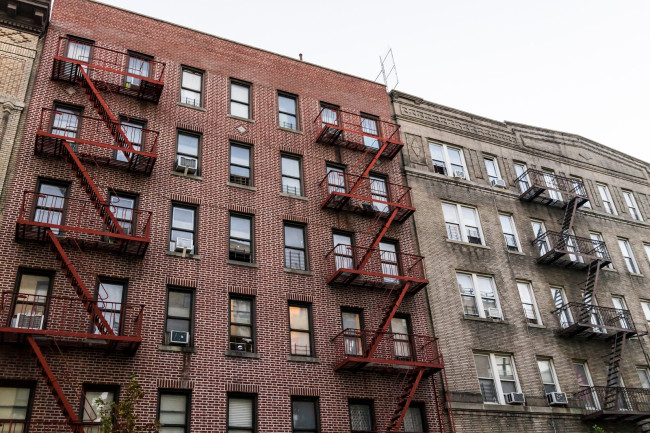My neighbor's bathroom leaks and damages my wall. How do I get this fixed permanently?
I’ve had maintenance in my bedroom twice in the past few months because my wall keeps bulging as a result of shoddy repairs to the neighbor’s bathroom wall. Maintenance has broken both sides down, re-plastered, and painted my bedroom wall and re-caulked the bathroom tiles. But after three months, my wall is showing signs of damage again. How do I get this permanently fixed? Should I be worried about mold?
If you live in a co-op or condo, your board is legally obligated to find a permanent fix for this issue, our experts say, and for renters, landlords must resolve with the problem.
"Unless the damage was caused by an event that is covered by multiperil insurance, the obligation of the co-op or condo is to repair the wall, but not necessarily the wall finishes," says Steve Wagner, partner at the Manhattan law firm Wagner, Berkow & Brandt (a Brick sponsor). "The rule is that it is the responsibility of the co-op or condo to permanently fix the wall. Unfortunately, it sometimes is difficult to get your board or managing agent to step up and make a permanent repair."
You'll have to do some work to motivate your building management to take action. Creating a paper trail is key: Get all the details about this ongoing issue in writing and send letters to the board and managing agent.
"You should request that they put some sort of a waterproof backing under the tiles, because obviously the tiles and the grouting are not holding the water back," says Deanna Kory, a broker with Corcoran. While it's not something that you necessarily can insist on, she say, "but you do have the right to make sure that you don’t have this happen to you over and over again. And the only way you can manage that is to complain."
You should also consult your building's alteration agreement to determine who is deemed responsible for the damage in this situation. If the leak is a result of updates your neighbors have made to their apartment, they may be liable for the repairs and should receive a copy of your letter as well. You should also inform your insurance provider about the problem.
"Notifying them as early as possible will give it a chance to investigate if the carrier feels it is warranted. In essence, you will be protecting yourself from a claim by your insurance company that you gave it late notice," Wagner says.
Mold is a serious concern, and if there have been multiple repairs made to the wall without any mold remediation, your health could be at risk. And not only is mold unhealthy, it can also invite pests.
"If moisture issues are improperly handled, you can expect small plaster or fungus beetles, and possibly a mold issue," says pest control expert Gil Bloom, president of Standard Pest Management. "It is important that walls be allowed to properly dry before any other repairs are made like plastering and painting, or installing sheetrock."
Hire a professional mold remediation firm to inspect your apartment, and if necessary, make repairs of its own.
"If you are concerned about mold, have it tested by a competent testing company," Wagner says. "The NYC Department of Health has guidelines for mold remediation. You should confirm that any company hired to remove mold from your apartment is using the DOH protocols."
Renters dealing with problems like this one also have the right to have it repaired. Tenants who need to compel their landlords to make a permanent fix should start by documenting the leak.
"You have to put things in writing and demand the landlord address the underlying issue," says Sam Himmelstein, a lawyer who represents residential and commercial tenants and tenant associations (a Brick sponsor). "Sometimes it becomes necessary for the tenant to hire a plumber or engineer to figure out what the source of the problem is if the landlord won't do it, which does involve some expense."
Tenants and homeowners alike may need to resort to taking their landlords or building management to court.
"If all else fails there is litigation. Finding a good lawyer familiar with the field could be of enormous assistance," Wagner says.
Tenants should consider whether the money they'll need to invest in litigation is worthwhile, Himmelstein cautions. "It depends on whether it's a rent-stabilized apartment and how long the tenant envisions living there," he says. "You may just want to use that money to move somewhere else."
Trouble at home? Get your NYC apartment-dweller questions answered by an expert. Send your questions to experts@brickunderground.com.
For more Ask an Expert questions and answers, click here.
You Might Also Like
































